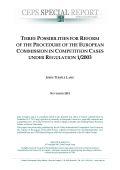Wolff Guntram , Sapir André, (2015), “Euro-area governance: what to reform and how to do it”, Bruegel Policy Brief , 27 April. The Issue Reform of the governance of the euro area is being held back by disagreement on what is at the root of the euro area’s woes. Pre-crisis, the euro area suffered from the built-up of financial imbalances, price and wage divergence and an insufficient focus on debt …Read More
‘Neoliberal’ variants have dominated Europe’s history but they have paved the way for a new conception of human progress
Glendinning, S. (2015) ‘Neoliberal’ variants have dominated Europe’s history but they have paved the way for a new conception of human progress, LSE EUROPP, 16 March. The term ‘neoliberalism’ is frequently used in contemporary political discussions, but while polemically effective, conceptually it lacks rigour. Simon Glendinning writes on the relationship between the concept and classical liberalism. He argues that by defining neoliberalism in terms of this relationship it becomes …Read More
Greece, Its International Creditors and the Euro
Sabri Öncü, T. (2015) “Greece, Its International Creditors and the Euro“, Naked Capitalism Blog, 17 February. Yves here. This is an excellent background piece on how Greece got where it is and how its various bailouts were structured. It also helps explain the past and current roles the various members of the Troika play and discusses the prospects for Greece achieving its aims. By T ([email protected]), a financial economist …Read More
The Lunch Question – A Brief History of Inequality
Morris, I. (2015) “The Lunch Question – A Brief History of Inequality“, Global Affaris, STRATFOR Global Intelligence, 11 February. At an event in Beijing last November, I had the good fortune to meet the French economist Thomas Piketty, who has sold 1.5 million copies of his book, Capital in the Twenty-First Century, since it was first published in 2013. Pacing up and down in front of a packed auditorium, …Read More
Germany Emerges
Friedman, G. (2015) “Germany Emerges“, Geopolitical Weekly, STRATFOR Global Intelligence, 10 February. German Chancellor Angela Merkel, accompanied by French President Francois Hollande, met with Russian President Vladimir Putin on Feb. 6. Then she met with U.S. President Barack Obama on Feb. 9. The primary subject was Ukraine, but the first issue discussed at the news conference following the meeting with Obama was Greece. Greece and Ukraine are not linked …Read More
Portugal must rebalance its economy and improve education to continue its economic recovery
Franco, F. (2015) “Portugal must rebalance its economy and improve education to continue its economic recovery“, LSE EUROPP, 12 February. Portugal was one of the worst hit countries by the Eurozone crisis, but emerged from its bailout programme in 2014. As part of our ‘economies of Europe’ series, Francesco Franco provides an account of the development of the Portuguese economy since the crisis, including some of the key challenges …Read More
The sham of central bank independence
Mitchell, B. (2014) “The sham of central bank independence“, Bill Mitchell Blog: Modern Monetary Theory – Macroeconomic Reality, 23 December. Let it be noted that the Japanese government 10-year bond yield hit 0.33 per cent overnight. That tells you that all the scaremongering that has been going on over the last twenty years about hyperinflation, the Japanese government running out of money, the bond markets dumping the yen, and …Read More
Combatting Eurozone deflation: QE for the people
Muellbauer, J. (2014) “Combatting Eurozone deflation: QE for the people“, VoxEU Organisation, 23 December. Eurozone deflation is likely to become reality when the annual inflation figure for 2014 is announced in January. This column argues that the ECB should develop a strategy that works in the Eurozone’s unique financial setting, instead of following the Fed’s lead. The author proposes that the ECB should pursue ‘quantitative easing for the people’, …Read More
Enhancing the Legitimacy of EMU Governance
Alcidi, C., Giovannini, A. & Piedrafita, S. (2014) “Enhancing the Legitimacy of EMU Governance“, Economic Policy, Politics and Institutions, Centre for European Policy Studies (CEPS) Special Reports, 18 December. This CEPS Special Report investigates ways to enhance the legitimacy of economic governance in the Economic and Monetary Union (EMU) without introducing Treaty changes. It suggests changes in the governance framework at both the institutional and economic level. Input-oriented legitimacy …Read More
Monetary policy and long-term trend
Goodhart, Α.Ε. C. & Erfurth, P. (2014) “Monetary policy and long-term trend“, VoxEU Organisation, 03 November. There has been a long-term downward trend in labour’s share of national income, depressing both demand and inflation, and thus prompting ever more expansionary monetary policies. This column argues that, while understandable in a short-term business cycle context, this has exacerbated longer-term trends, increasing inequality and financial distortions. Perhaps the most fundamental problem has …Read More






